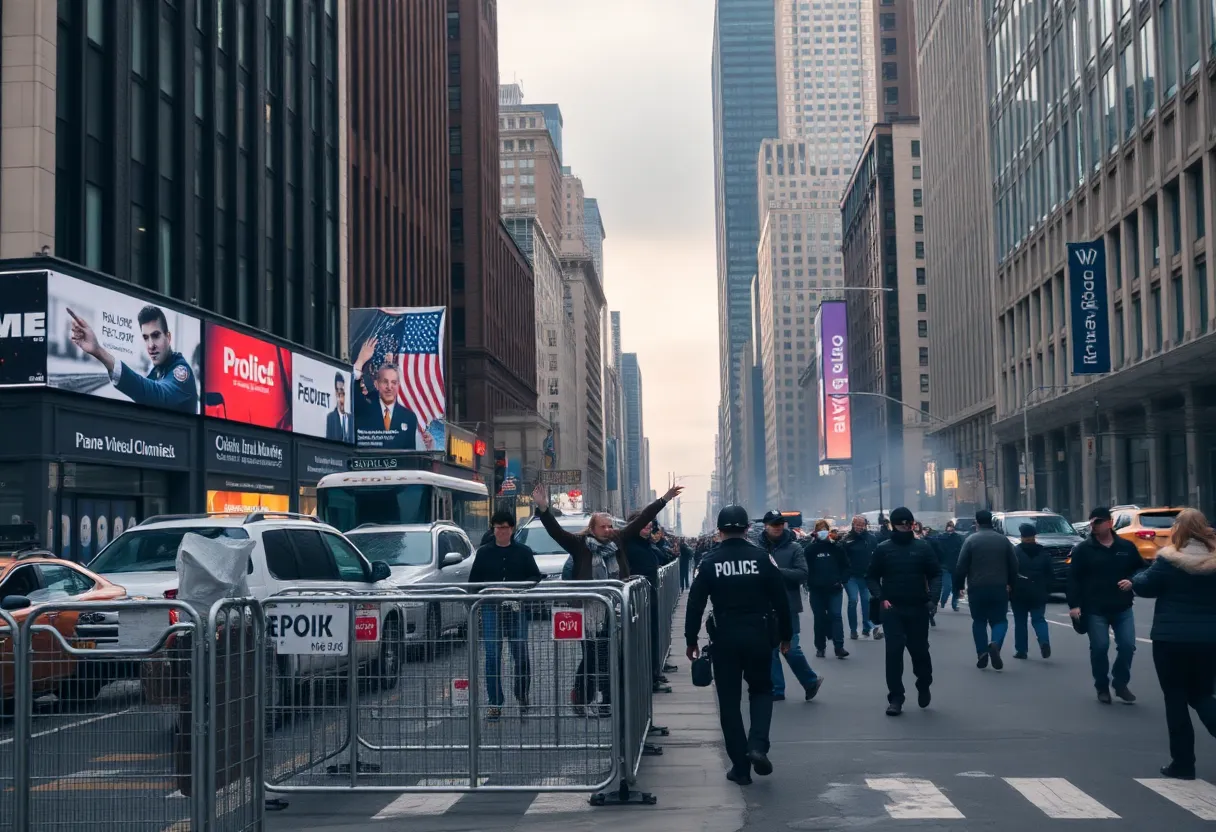News Summary
The Trump administration is encountering significant legal opposition due to its aggressive policies toward American cities, which many perceive as harsher compared to past measures. These policies have led to funding cuts and federal troop deployments, straining city resources. As metropolitan areas account for a large portion of U.S. economic output and employment, local leaders express frustration over the limited governance powers they possess. Legal battles, especially regarding funding cuts to sanctuary cities, intensify amid a backdrop of growing tensions between federal and local authorities.
Nationwide – The Trump administration is facing increasing legal challenges and widespread discontent due to aggressive policies aimed at American cities. Unlike President Gerald Ford’s historical actions during New York City’s financial crisis, which included federal loans with strict conditions, Trump’s measures are seen by many as much harsher. These policies, which include funding cuts and the deployment of federal troops, have left cities struggling to respond with the limited power and resources they possess.
As of last year, metropolitan areas accounted for 90.8% of the U.S. economic output, employing 88.2% of American workers, while 86.4% of the population resides in cities. These urban centers are critical not only to the economy but also financially support rural areas and small towns. Law professors and experts have noted that the current environment exhibits an “apex of virulent anti-urbanism” in the United States, directing attention to Trump’s controversial handling of cities, particularly those with Democratic leadership.
The administration has threatened to cut federal funding for vital infrastructure, transit, and energy projects in cities governed by Democrats, delaying essential development amidst a federal government shutdown. Furthermore, the anticipated budget cuts to programs such as Medicaid and SNAP will have a profound impact on local budgets, limiting the ability of cities to provide necessary services.
Cities, described as “creatures of the state,” face constitutional limitations that prevent them from independently raising taxes or borrowing money without state approval. Despite the pressures exerted by federal policies, cities remain hamstrung in their responses. A prime example is Memphis, where Tennessee’s Republican Governor Bill Lee has encouraged federal troop deployment despite opposition from the city’s Democratic mayor.
Local leaders have increasingly expressed frustration, asserting that each layer of government unduly limits their authority and options. This situation is compounded by legal doctrines like Dillon’s Rule, which, established in the 1870s, affirms state control over cities. While states like California and New York offer “home rule” provisions that permit cities greater control over local affairs, many other states maintain tight regulations that restrict city governance.
This dynamic becomes especially apparent as cities are often unjustly blamed for national issues such as homelessness and crime, despite their lack of control over the crucial federal funding and laws that influence these challenges. Approximately one-third of cities’ revenue comes from federal grants that are allocated through state governments.
The Trump administration has made it clear that it intends to punish so-called ‘sanctuary cities,’ which are jurisdictions that limit cooperation with federal immigration enforcement. Basic federal funding has been threatened, drawing numerous lawsuits, including challenges from cities like San Francisco and Los Angeles, which argue that the administration is overstepping its legal boundaries.
In a recent development, a federal judge blocked the Trump administration from cutting funds to sanctuary cities, ruling that the freezing of such funds was unconstitutional, particularly harming cities that limit cooperation with ICE. The legal battles reflect broader discontent and constitutional debates surrounding local governance authority and the Tenth Amendment, which reserves powers not given to the federal government for the states.
The backdrop of these challenges highlights that many state and local governments, particularly Democratic-led cities, struggle against federal policies aimed at undermining their autonomy. Local officials cite detrimental impacts on trade, immigration, and energy due to Trump’s agenda, complicating the prospects for local governance partnerships.
As tensions deepen between the federal government and urban centers, the future of American cities remains uncertain amid a landscape that increasingly views urban areas through a punitive lens. The fallout from Trump’s aggressive policies continues to unfold, prompting further scrutiny and legal action from local leaders who seek to maintain their authority and viability in the face of federal overreach.
Deeper Dive: News & Info About This Topic
- CNN: Trump Administration’s Impact on U.S. Cities
- Wikipedia: Federal Government of the United States
- New York Times: Trump Shuts Down Government to Punish Political Foes
- Google Search: Trump administration sanctuary cities
- WTTW: Chicago Organizers React to Trump Administration’s Funding Freeze
- Encyclopedia Britannica: Sanctuary City
- ABC News: Judge Blocks Trump Administration’s Funding Cuts to Cities
- Google Scholar: Federal funding sanctuary cities
- Reuters: Judge Blocks Trump’s Funds Withholding from Sanctuary Cities
- Google News: Trump funding sanctuary cities
- New York Times: Trump’s Funding Cuts to Sanctuary Cities

Author: STAFF HERE NEW YORK WRITER
The NEW YORK STAFF WRITER represents the experienced team at HERENewYork.com, your go-to source for actionable local news and information in New York, the five boroughs, and beyond. Specializing in "news you can use," we cover essential topics like product reviews for personal and business needs, local business directories, politics, real estate trends, neighborhood insights, and state news affecting the area—with deep expertise drawn from years of dedicated reporting and strong community input, including local press releases and business updates. We deliver top reporting on high-value events such as New York Fashion Week, Macy's Thanksgiving Day Parade, and Tribeca Film Festival. Our coverage extends to key organizations like the Greater New York Chamber of Commerce and United Way of New York, plus leading businesses in finance and media that power the local economy such as JPMorgan Chase, Goldman Sachs, and Bloomberg. As part of the broader HERE network, including HEREBuffalo.com, we provide comprehensive, credible insights into New York's dynamic landscape.





